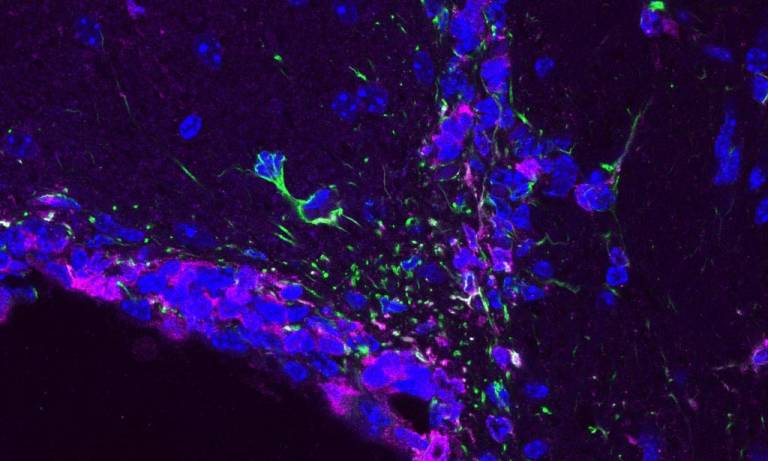Study discovers protein linked to neurodegenerative diseases
27 July 2021
A study has identified a new protein linked to neurodegeneration that could play a role in disrupting the normal function of specific brain cells which could lead to various forms of dementia.

A research team from Queen Square Institute of Neurology (IoN) discovered that hnRNP K (an RNA-binding protein) is found to be ‘mislocalised’, potentially disrupting the normal function of specific brain cells which could lead to diseases like dementia.
This protein should be mainly found in the nucleus. But the researchers have seen that in disease its location is shifted to the cytoplasm, hence why it is said to be mislocalised from the nucleus to the cytoplasm.
The new study published in Acta Neuropathologica is the first to link this particular protein to neurodegeneration, a crucial finding for researchers to understand the underlying mechanisms leading to neurodegenerative diseases.
One of the first authors Dr Ariana Gatt said: “Our research found that hnRNP K (an RNA-binding protein) is depleted from the nucleus in a subset of cells within the brain in frontotemporal lobar degeneration (FTLD). This loss of function in the nucleus leads to abnormal processing of the RNA within the nucleus, which can lead to reduced levels of functional protein within the cell. This suggests that hnRNP K might play an important role in disease progression in FTLD.”
“The initial cellular changes taking place, e.g. at the RNA processing level, are potentially driving the neurodegeneration and therefore serve as crucial therapeutic targets. By understanding the changes in levels and localisation of hnRNP K within the progression of neurodegeneration we can target these changes or its downstream effects therapeutically,” she explains.
Frontotemporal degeneration occurs in frontotemporal dementia and is caused by progressive damage and loss of nerve cells in the frontal and temporal lobes of the brain. Depending on the subtype of dementia, some people with frontotemporal dementia have dramatic changes in their personality and behaviour, while others lose the ability to use language properly.
There are currently around 850,000 people with dementia in the UK alone. Worldwide, the cases are around 50 million and these are projected to increase to around 135 million by 2050. No treatments or cure is available for Alzheimer’s disease, the most common form of dementia, let alone the rarer dementias like frontotemporal dementia.
Dr Gatt said: “It is now well understood in the field that it is crucial for us to understand the pre-symptomatic changes occurring at the brain cellular level so that we can identify targets which are amenable to treatment. This would disrupt the neurodegenerative chain of events and potentially salvage the healthy function of the neuron.”
While the current study identified hnRNP K mislocalisation in several pathological subtypes of FTLD they also identified mislocalisation in older control cases, suggesting that this phenomenon could be age related. Having identified a potential role for hnRNP K in neurodegeneration in FTLD and aged control human brains the researchers now aim to investigate this further, as well as look into other forms of dementia such as Alzheimer’s disease and motor neuron disease.
Links
- UCL Queen Square Institute of Neurology
- Dr Ariana Gatt
- Acta Neuropathologica publication
- Professor Pietro Fratta
- Professor Tammaryn Lashley
- Alexander Bampton
 Close
Close

